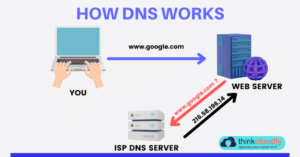Introduction
In the dynamic world of IT, the role of a Network Engineer remains integral to the seamless functioning of organisations. As we step into 2024, the demand for skilled Network Engineers continues to rise. Whether you’re an aspiring network professional or a seasoned expert looking to switch roles, preparing for interviews is important. In this blog, we’ll explore top 12 Network Engineer interview questions for 2024. These questions are designed to assess a candidate’s technical knowledge, problem solving skills, and ability to navigate the complexities of modern networking. Whether you’re conducting interviews or gearing up as a candidate, let’s dive into these essential queries for a successful and informed network engineering interview process.
Top 12 Network Engineer Interview Questions for 2024
- What is the OSI Model, and why is it important in networking?
Ans. Assess a candidate’s basic understanding by inquiring about the OSI model. Inspect for responses which not only define the model but also emphasise its significance in understanding network communication and troubleshooting.
- Can you explain the difference between TCP and UDP?
Ans. Evaluate a candidate’s understanding of transport layer protocols. Search for answers which differentiate between TCP (Transmission Control Protocol and UDP (User Datagram Protocol), which highlights their use cases and characteristics.
3.How do you troubleshoot network performance issues?
Ans. Assess a candidate’s problem solving skills by asking about troubleshooting strategies. Look for responses which outline a systematic approach in identifying and resolving network performance problems, besides considering factors such as latency, packet loss, and bandwidth.
4.What is VLAN, and how does it enhance network security?
Ans. Explore a candidate’s knowledge of network segmentation and security, Look for answers which define VLANs (Virtual Local Area Networks) and explain how they contribute to improved network security by logically dividing broadcast domains.
5.Can you differentiate between IPv4 and IPv6?
Ans. Assess a candidate’s familiarity with IP addressing. Expect answers which highlight the differences between IPv4 and IPv6, which includes address formats, size, and the need for IPv6 adoption.
6.How does DNS (Domain Name System) Work?
Ans. Evaluate a candidate’s knowledge of DNS, a fundamental component of network infrastructure. Look for answers which explain the process of translating domain names into IP addresses and the hierarchical structure of the DNS.
- What is the purpose of subnetting, how is it implemented?
Ans. Examine a candidate’s knowledge of IP subnetting. Search for responses which define subnetting and illustrate its purpose, such as optimising address space and improving network performance.

8.How would you secure a wireless network?
Ans. Explore a candidate’s expertise in wireless networking security. Look for answers that include strategies such as implementing encryption (WPA/WPA2), changing default passwords, and using MAC address filtering.
9.Can you explain the concept of routing and its importance in networking?
Ans. Evaluate a candidate’s knowledge of routing in network architecture. Look for responses which define routing, its role in directing data between networks, and the significance of routing tables.
10.What are ACLs(Access Control Lists), and how are they used in networking?
Ans. Assess a candidate’s understanding of access control in network security. Consider responses which define ACLs, their role in controlling traffic flow, and how they contribute to enforcing security policies.
11.How do you stay informed about emerging trends and technologies in networking?
Ans. Explore a candidate’s commitment to continuous learning. Search for responses which includes staying updated through industry publications, online forums, attending conferences, and also engaging in professional development activities.
12.Can you share an example of a complex network issue you successfully resolved?
Ans. Assess a candidate’s practical experience by asking about a specific challenge they’ve overcome. Consider answers which highlight the complexity of the issue, the steps taken to resolve it, and the ultimate success achieved.
Conclusion
As the demand for skills Network Engineers continues to grow, mastering these top 12 interview questions for 2024 will set participants and hiring managers on a path to success. Whether you’re a seasoned professional or an aspiring network engineer, navigating the intricacies of networking interviews needs a blend of technical proficiency and problem solving acumen. By incorporating these mandatory questions into your interview process, you must ensure a thorough assessment of candidates’ capabilities and readiness for the dynamic challenges of modern network engineering.













No comment yet, add your voice below!